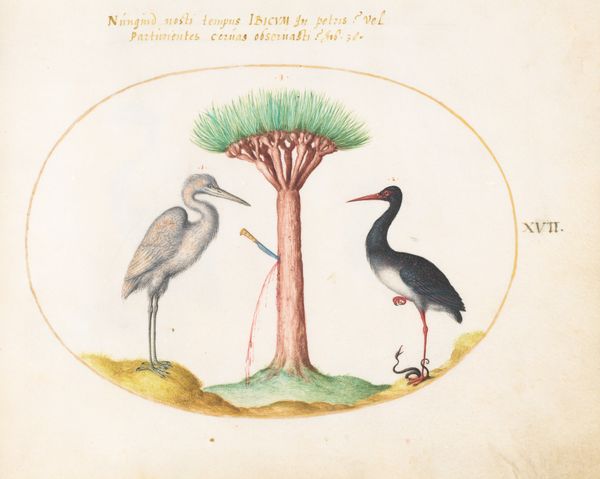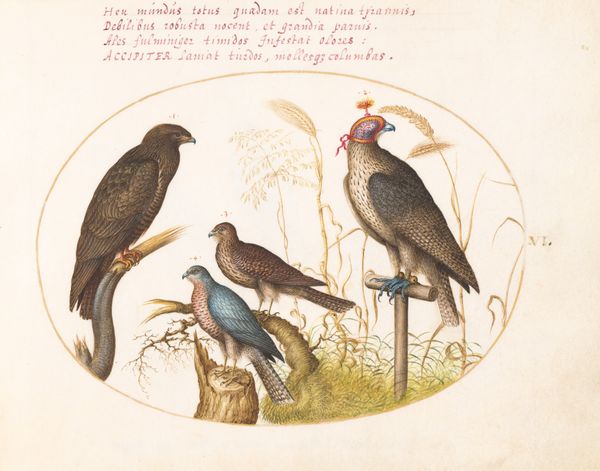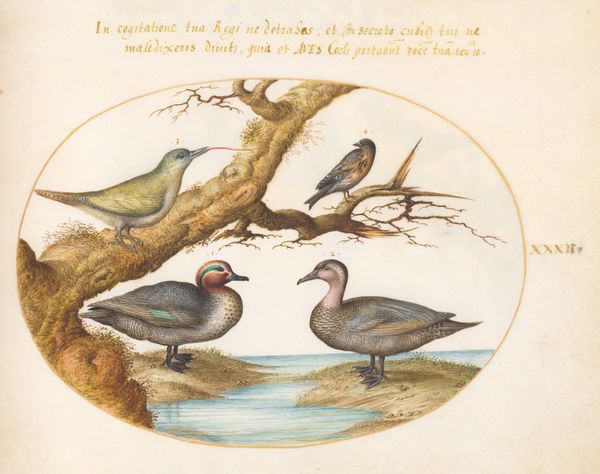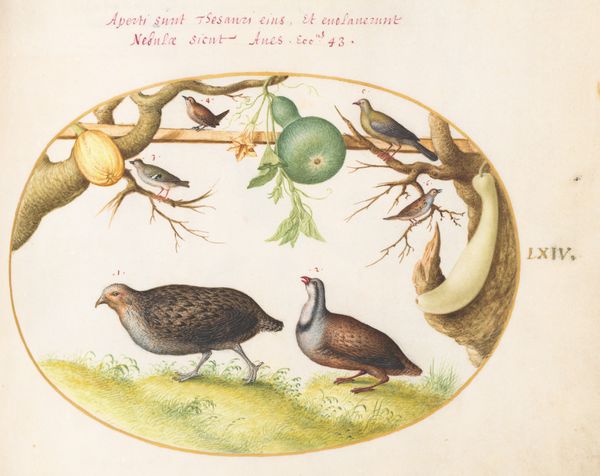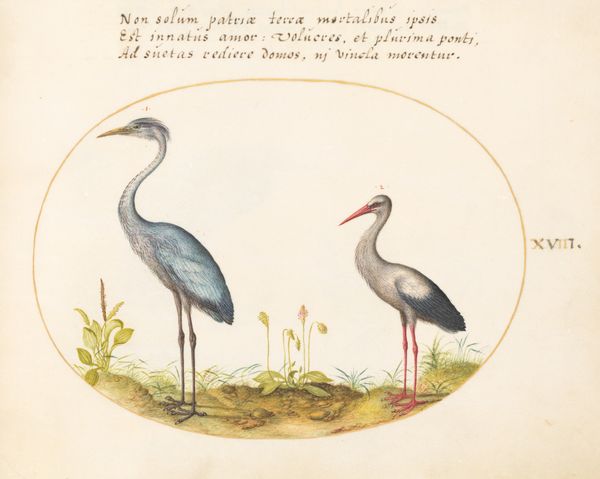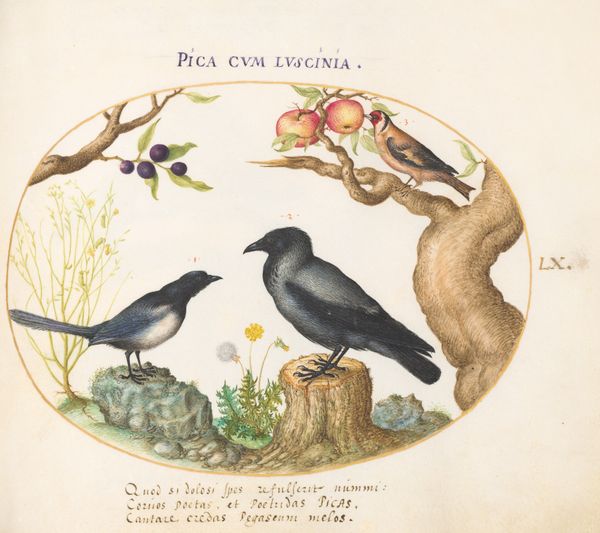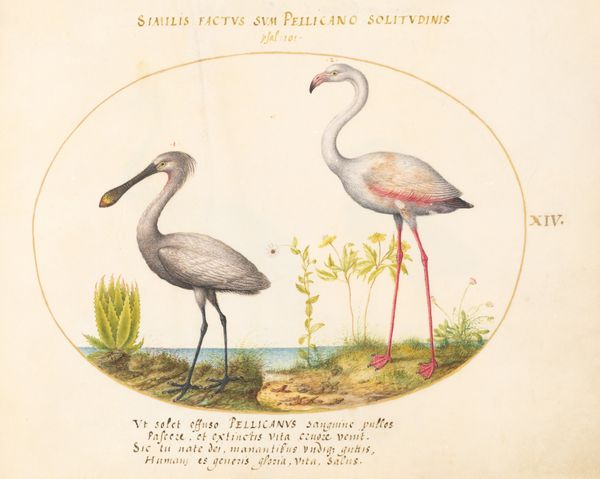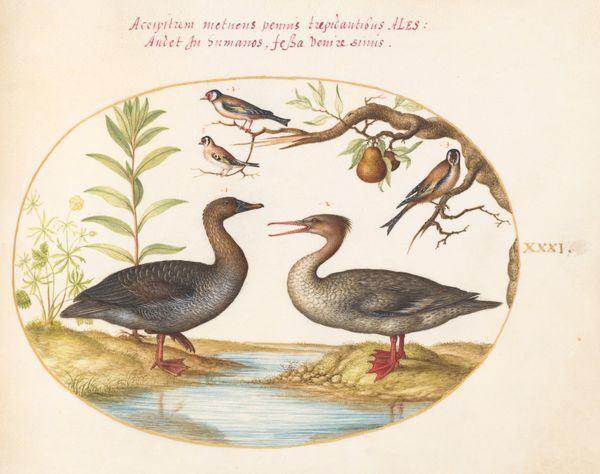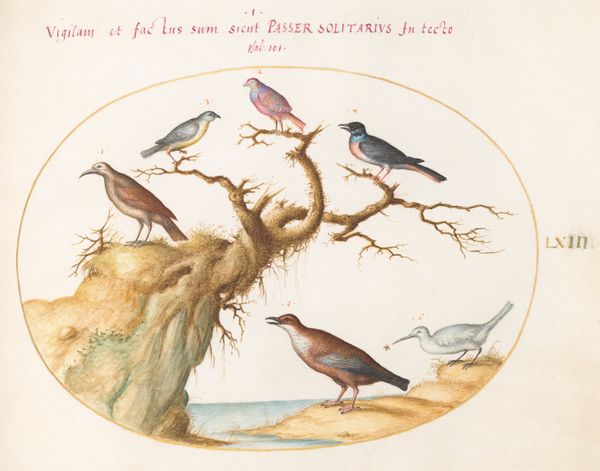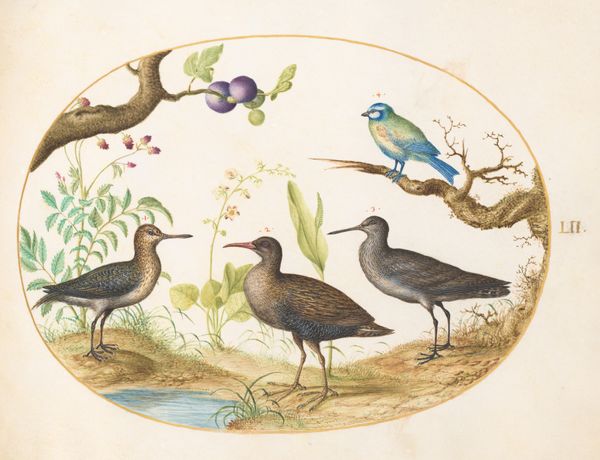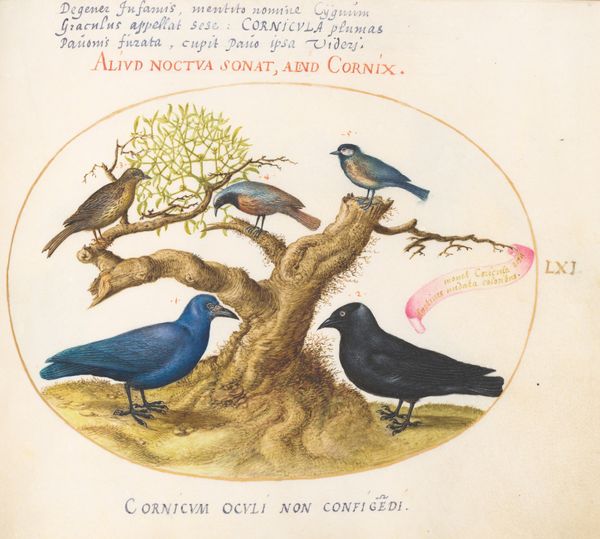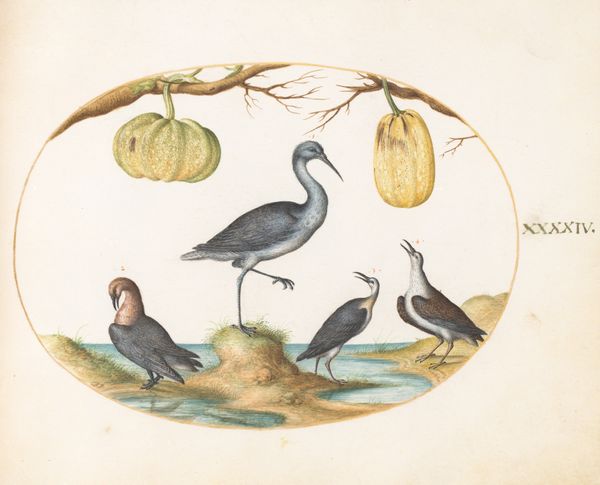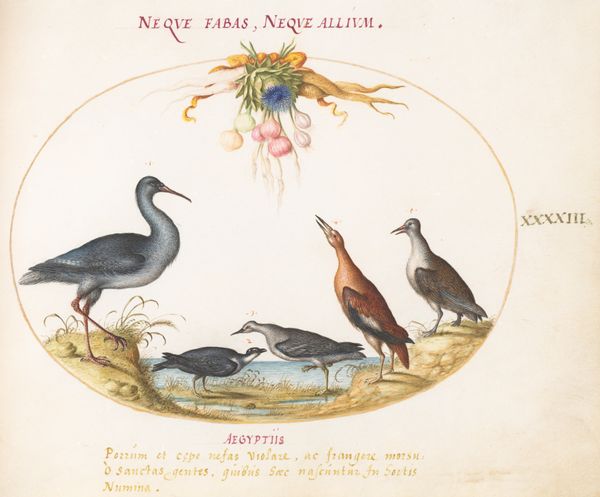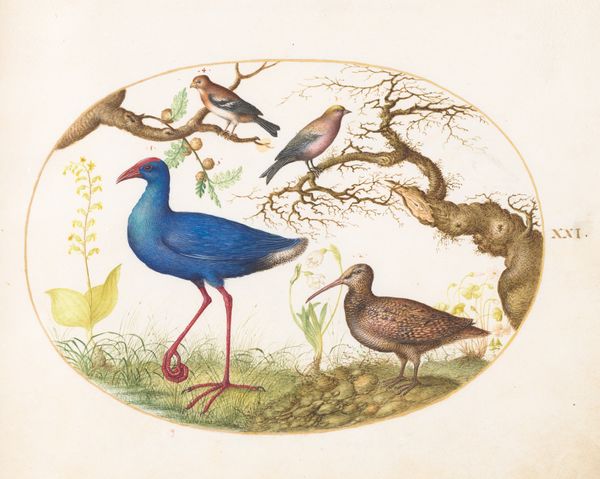
drawing, coloured-pencil, tempera
#
drawing
#
coloured-pencil
#
tempera
#
landscape
#
mannerism
#
figuration
#
11_renaissance
#
coloured pencil
#
botanical drawing
#
botanical art
Dimensions: page size (approximate): 14.3 x 18.4 cm (5 5/8 x 7 1/4 in.)
Copyright: National Gallery of Art: CC0 1.0
Joris Hoefnagel made this watercolor and ink on vellum in the late 16th century. It’s a beautiful example of the naturalism that was gripping artists and scientific thinkers across Europe at the time. But what are the politics of this kind of image-making? Hoefnagel was working at a time when natural history was becoming an established discipline, often patronized by royalty and elites. Detailed studies such as this were prized as both scientific documents and collector’s items. He was employed by the court of Rudolf II, the Holy Roman Emperor, who used these images as records of the exotic plants and animals in his possession. While appearing objective, these images also implicitly reinforced the social hierarchy. The Emperor’s wealth and power allowed him to possess rare and beautiful things. The images of these things served as trophies, proof of his global reach and the authority of his knowledge. To understand this work better, we might look at the history of scientific illustration or the patronage of the Habsburg court. We might reflect on the way that the institutions of science and art can become intertwined with social and political power.
Comments
No comments
Be the first to comment and join the conversation on the ultimate creative platform.
